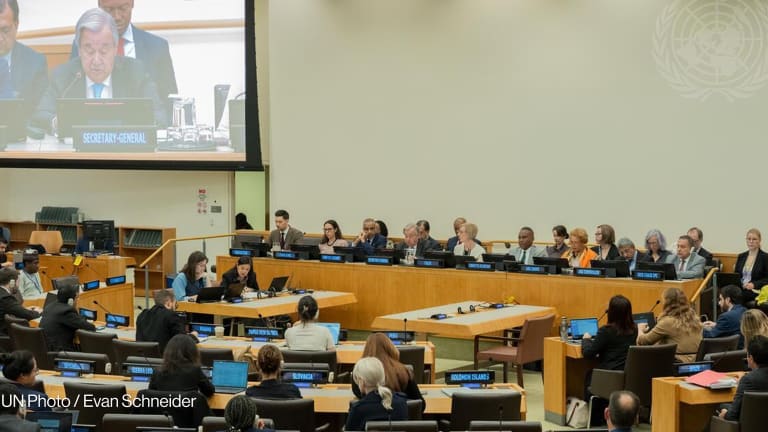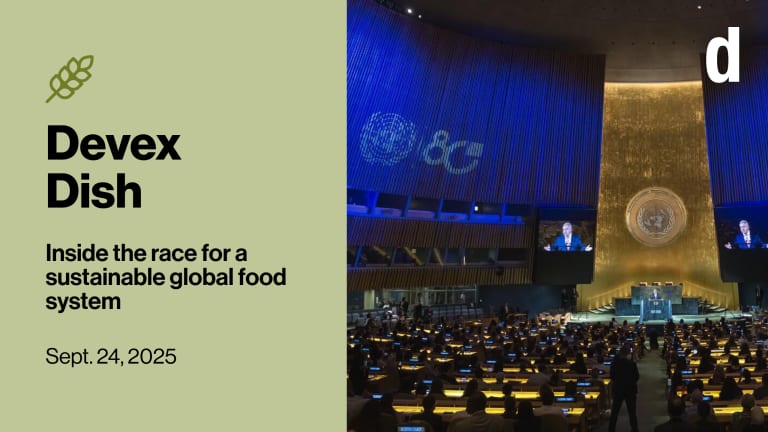
The European Commission has earmarked €1 billion ($1 billion) in development assistance for Ethiopia for the 2021-2027 budgetary period, an official said Monday. However, for now Brussels is spending the money in small slices, outside its planned seven-year country program, and not via direct funding to the government in Addis Ababa.
Didier Verse, the head of unit for east and central Africa in the commission’s development department, told members of the European Parliament that it is too soon to resume budget support to Prime Minister Abiy Ahmed’s administration or to adopt the commission’s multiannual indicative program — MIP for short — negotiated with Ethiopian authorities.
Having cut off budget support in December 2020 over the conflict in the country’s Tigray region, the commission has made the resumption of funding to the government and the adoption of the MIP conditional on improved humanitarian access, the cessation of hostilities, and accountability for human rights violations.
Despite “slow but steady progress,” Verse said Monday that “the humanitarian, the political, and the military situation remain very fragile, and positive steps are reversible.”
EU readies fresh money for Ethiopia, but not yet its government
European diplomats see “progress in relative terms” on human rights and aid access, but “not yet enough in absolute terms.”
Calling Ethiopia “a country in crisis,” Verse welcomed the appointment of a seven-member peace negotiating team but said: “We think that today it remains to be seen how productive this negotiation will be and if a return to the large-scale conflict can be prevented. But clearly it’s too early to say … that there is a cessation of hostilities.”
Instead, the commission this week approved €81.5 million, mostly for health and education in conflict-affected areas, to be channeled through NGOs, the United Nations, and European Union member state development agencies. That money comes from the €1 billion set aside for Ethiopia for the 2021-2027 period, though it is considered a “special measure” as the MIP has yet to be signed.
Though “of course it’s not a big amount,” Verse said Monday that the €81.5 million was a “starting point.” He said the commission hopes to adopt a second package focused on food security and peace building for roughly the same amount by the end of the year.
Asked which areas the MIP will focus on, Verse repeated what MEPs were told and what Devex reported a year ago — namely that the plan foresees 40% of the spending going to climate issues, sustainable energy, and green growth; 40% to health, education, and migration; and the remainder to governance and peace building.
However, that is now subject to change, Verse said.
“That is what [was] foreseen before the big crisis,” he said. “Of course it will be necessary to update this approach when the time will be there.”
Though a symbol of political partnership between Brussels and recipient countries, MIPs also narrow funding to certain thematic areas, making further special measures a potentially appealing option to the commission given the fast-evolving situation in Ethiopia.
Verse said the currently foreseen focus areas would apply, “if one day we sign a MIP.”
And he said that in addition to the planned €1 billion MIP, there remains €142 million from the budget support under the commission’s previous budget that was frozen over the past year and a half. Ethiopia had an envelope of €815 million for the 2014-2020 budgetary period, plus more than €400 million from the EU Emergency Trust Fund for Africa, as well as money received through thematic programs.
Devex reported last week that Jutta Urpilainen, the commissioner responsible for development policy, has offered the Ethiopian government the prospect of signing the MIP in the coming months, should the commission’s conditions be met.








